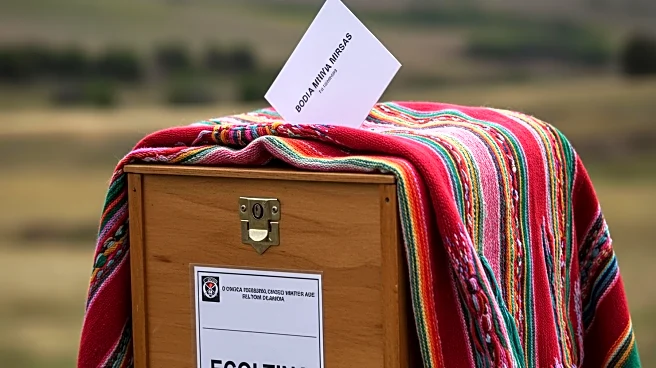What's Happening?
Bolivia is set to hold elections on August 17 to elect a new president, vice president, and legislative seats. The election comes at a time when the country is facing significant economic challenges, including high inflation and scarce fuel. Ex-President Evo Morales, a dominant political figure, is barred from running and has called for a boycott, but his influence appears to be waning. The incumbent Movement for Socialism (MAS) faces declining support, while right-wing parties are gaining traction. The election will use a new system to address past fraud claims, with international observers overseeing the process.
Why It's Important?
The outcome of Bolivia's election could have significant implications for the country's political landscape and economic policies. A shift in power could lead to changes in economic strategies, particularly in addressing the current crisis. The election is also crucial for Bolivia's lithium industry, as political stability and regulatory changes could attract foreign investment and development of its vast lithium resources. The presence of international observers aims to ensure a fair and transparent electoral process, which is vital for maintaining public trust and political stability.
What's Next?
If no candidate wins outright, a runoff election is scheduled for October 19, with the new president taking office on November 8. The election results will be closely watched by international stakeholders, particularly those interested in Bolivia's lithium resources. The new government will need to address economic challenges and potentially revise regulatory frameworks to attract investment and stimulate growth.









